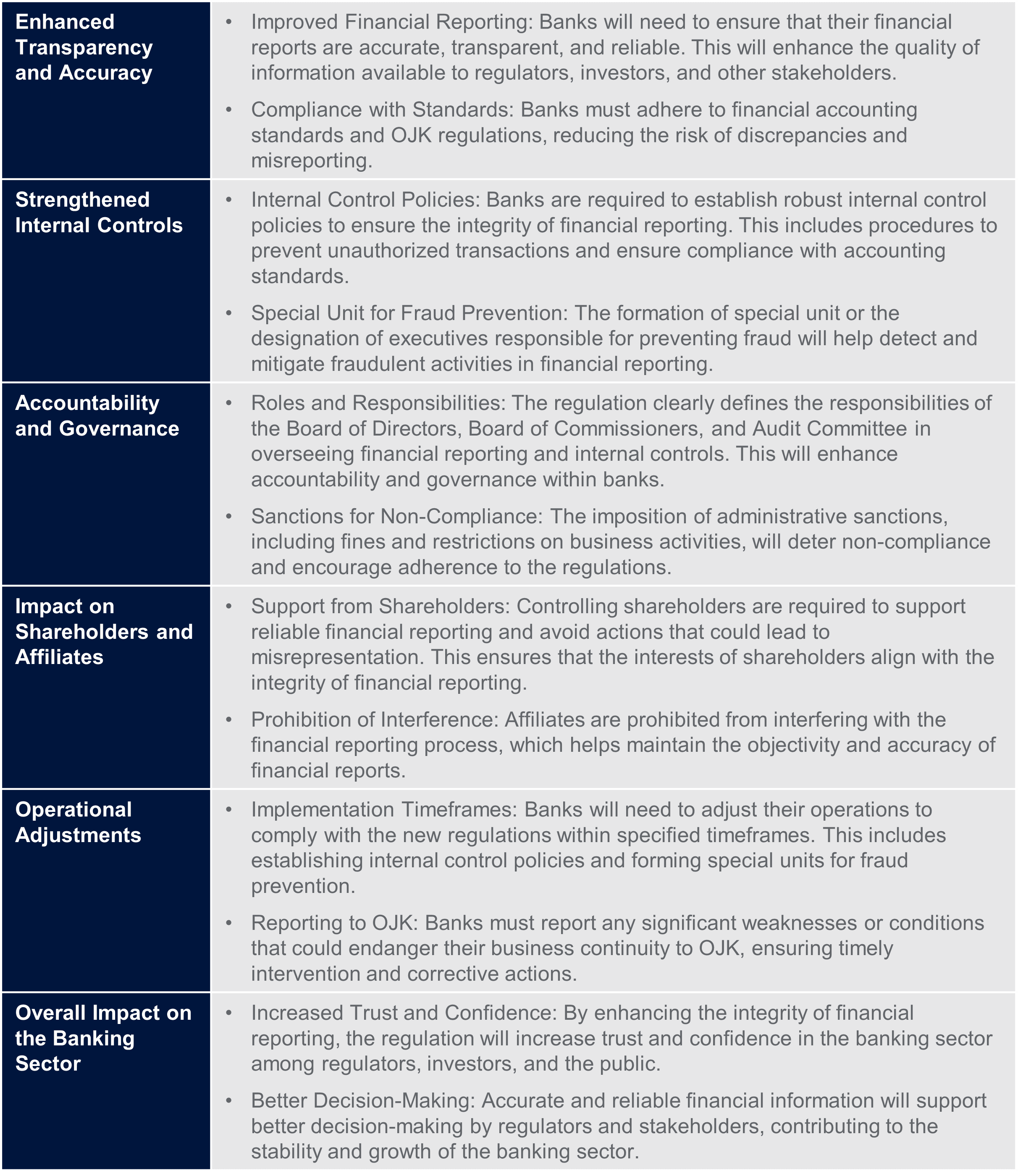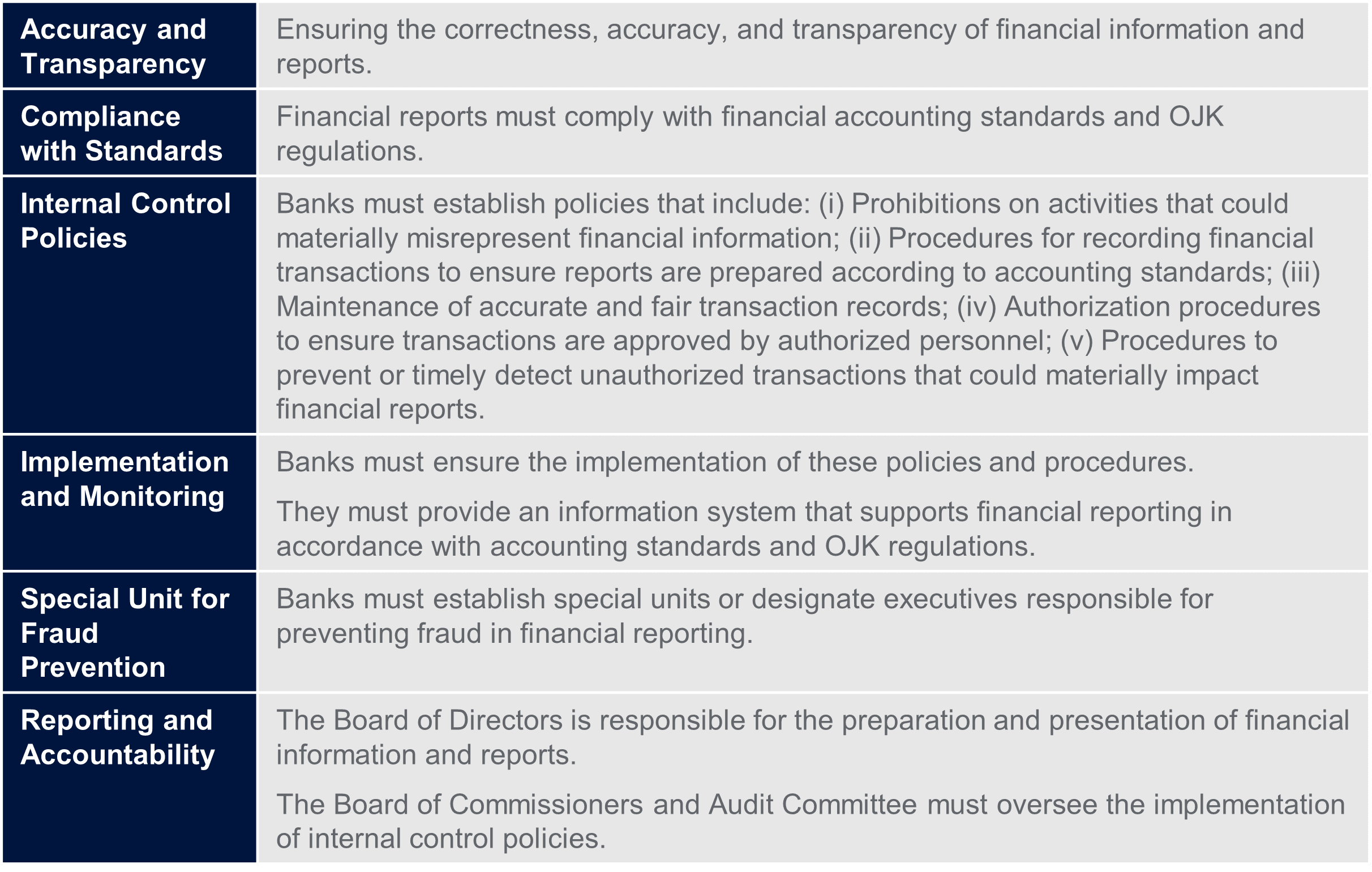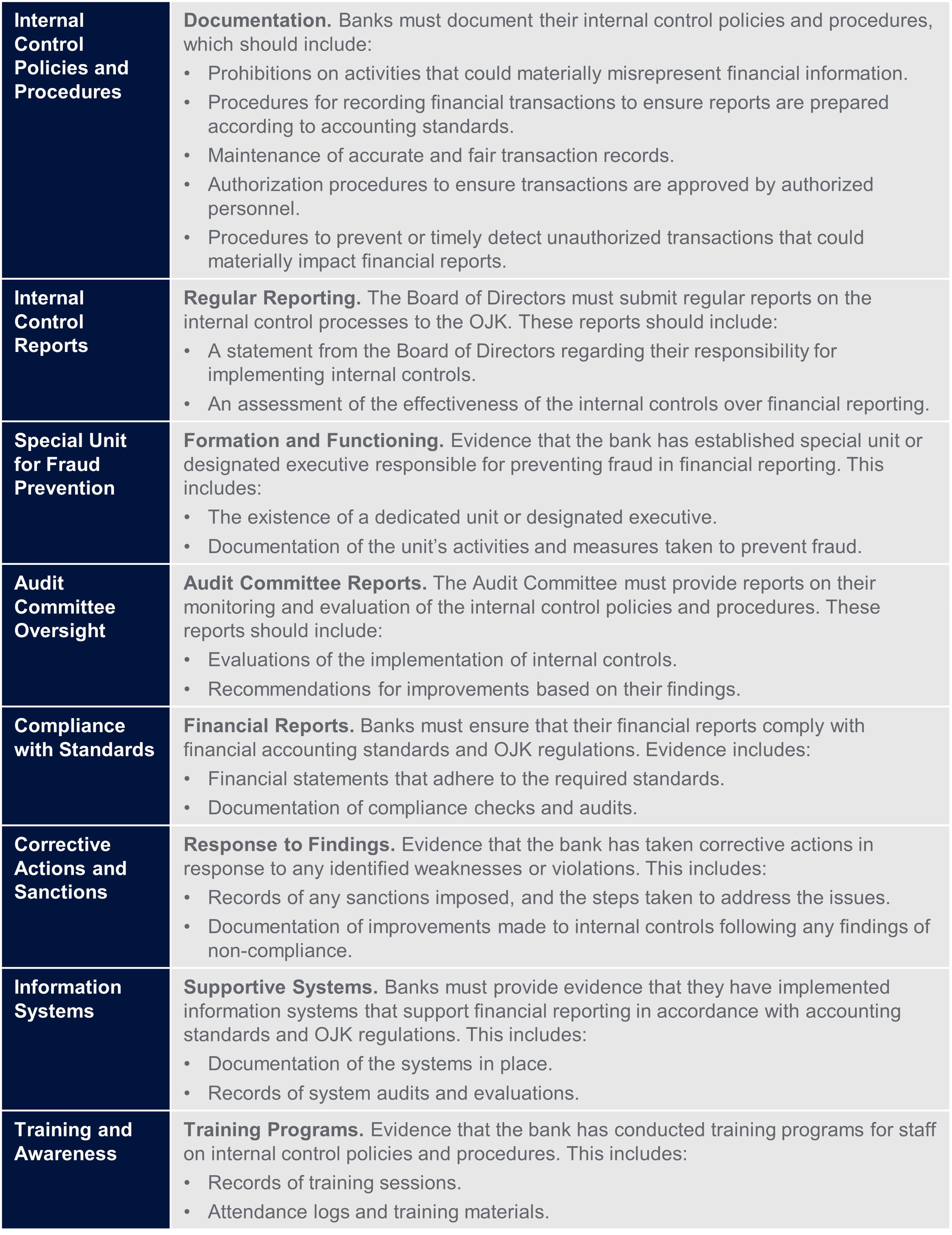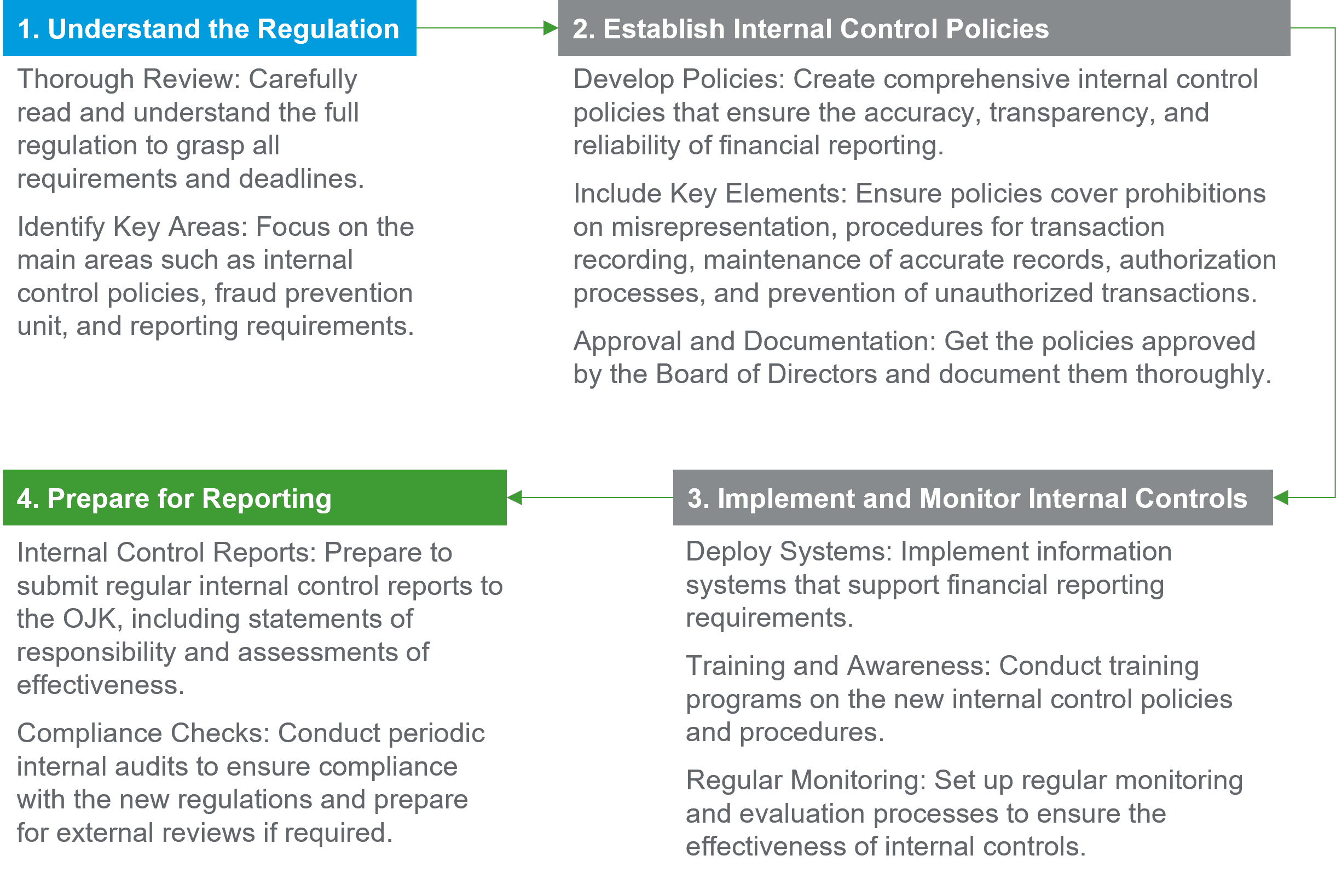RSM INDONESIA CLIENT ALERT – 1 November 2024
Otoritas Jasa Keuangan (OJK) has released POJK No.15/2024 in October 2024 - this regulation focuses on ensuring the integrity of financial reporting by banks. It emphasizes the importance of accurate and reliable financial information for decision-making by regulators and stakeholders.
KEY POINTS
Financial Reporting Requirements. Banks must ensure the accuracy, transparency, and reliability of financial information and reports. Financial reports must comply with financial accounting standards and OJK regulations.
Prohibited Actions. Directors, commissioners, and executives are prohibited from manipulating financial information or reports. Any actions that cause financial reports to misrepresent the bank’s actual condition are forbidden.
Internal Control Policies. Banks must establish internal control policies to ensure the accuracy and transparency of financial reporting. These policies should prevent unauthorized transactions and ensure compliance with accounting standards.
Special Unit for Fraud Prevention. Banks are required to form special unit or designate executives responsible for preventing fraud in financial reporting.
Sanctions. Administrative sanctions, including fines and restrictions on business activities, are imposed for non-compliance. Severe penalties are outlined for significant violations, including fines up to Rp50 billion for commercial banks.
Roles and Responsibilities. The Board of Directors is responsible for the preparation and presentation of financial information and reports. The Board of Commissioners and Audit Committee must oversee the implementation of internal control policies.
Shareholders and Affiliates. Controlling shareholders must support reliable financial reporting and avoid any actions that could lead to misrepresentation. Affiliates are prohibited from interfering with the financial reporting process.
Reporting to OJK. Banks must report any significant weaknesses or conditions that could endanger their business continuity to OJK.
Implementation. Banks are given specific timeframes to comply with the new regulations, including establishing internal control policies and forming special units for fraud prevention.
SEVERAL SIGNIFICANT IMPACTS
Overall, this regulation aims to create a more transparent, accountable, and reliable banking environment, which will benefit all stakeholders involved. The regulation for banks will have several significant impacts.

TIMELINE APPLICABILITY & FINES
Implementation Timeline
- Date of Enactment: The regulation was enacted on October 2, 2024.
- Date of Effectiveness: The regulation became effective on October 9, 2024.
General Timeline for All Banks
- Internal Control Policies: Banks must establish and implement internal control policies within 3 months from the date the regulation is enacted (By January 9, 2025)
- Special Unit for Fraud Prevention: Banks must form special unit or designate executives responsible for preventing fraud within 6 months from the date the regulation is enacted (By April 9, 2025).
Specific Requirements for BPR (Rural Banks)
- BPR with Core Capital Less Than Rp80 Billion: Must either form a special unit or appoint an executive responsible for fraud prevention within the specified timeframe.
- BPR with Core Capital of Rp80 Billion or More: Must form a special unit dedicated to fraud prevention within the specified timeframe.
Fines
- Commercial Bank: Fines range from Rp2 billion to a maximum of Rp50 billion for each violation.
- BPR: Fines range from a minimum of Rp10 million to a maximum of Rp100 million for each violation.
ADEQUATE INTERNAL CONTROLS
Under this regulation, sufficient or adequate internal control is defined by several key elements:

By adhering to these elements, banks can ensure that their internal controls are sufficient and adequate to maintain the integrity of their financial reporting processes.
EVIDENCE OF IMPLEMENTATION
Under the regulation, banks must provide several forms of evidence to demonstrate that they have implemented effective internal controls over financial reporting. By providing these forms of evidence, banks can demonstrate implementation, as required by the regulation.

KEY STEPS IN IMPLEMENTING THE NEW REGULATION
Here are key steps for considerations when preparing the implementation. By following these steps, banks can effectively prepare for and implement the new regulations, ensuring compliance and enhancing the integrity of their financial reporting processes.





